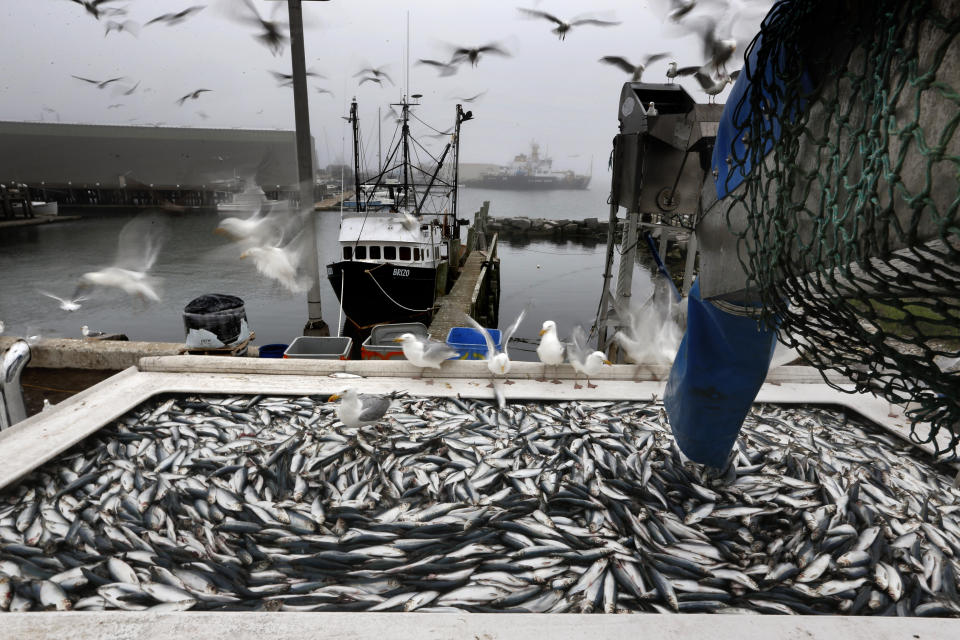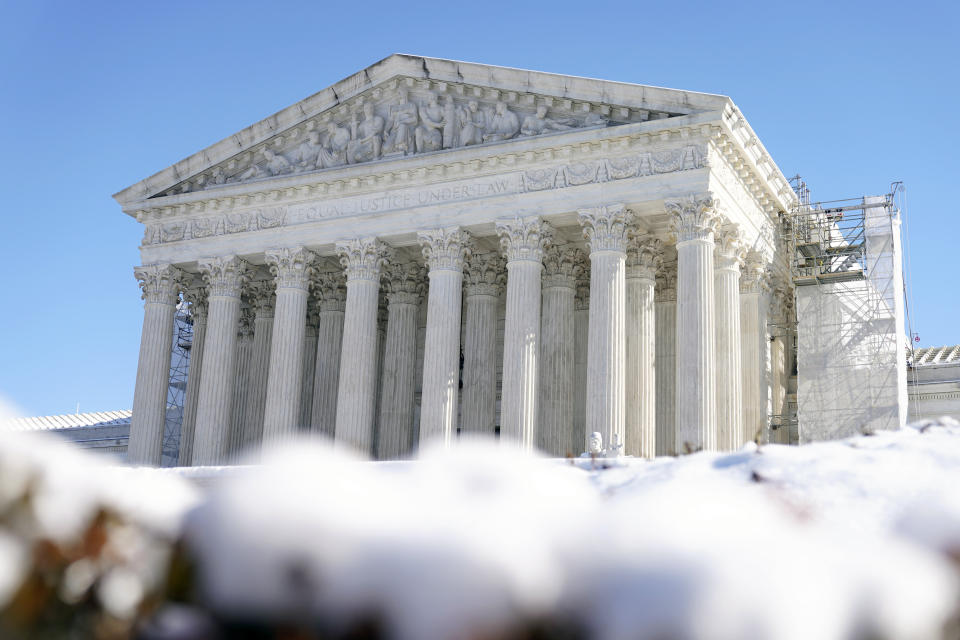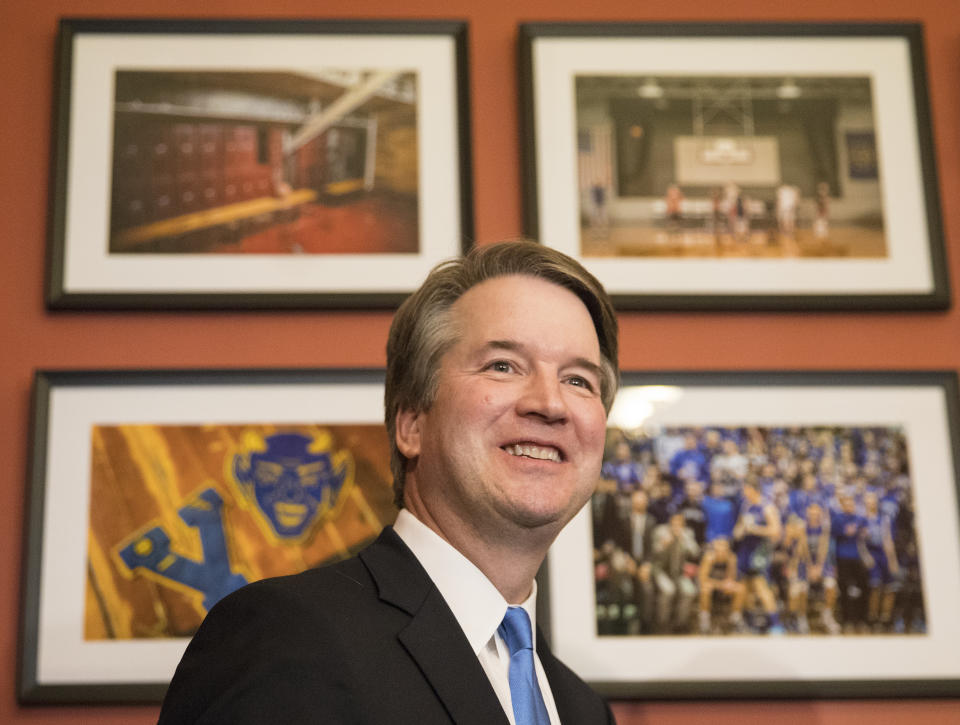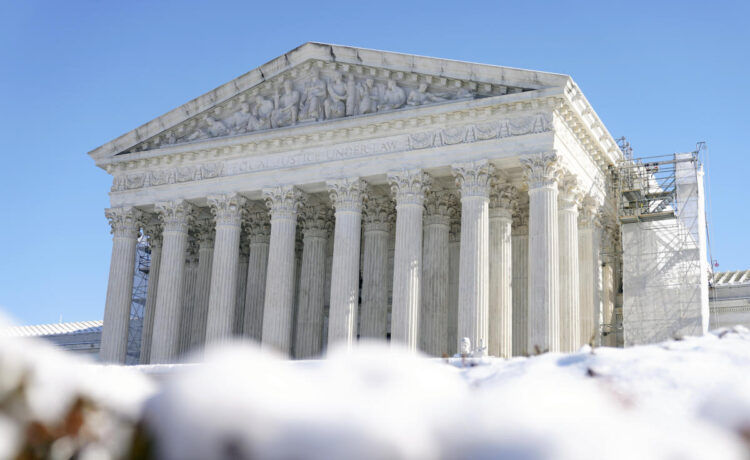Some conservative Supreme Court justices signaled Wednesday they are ready to overrule a legal doctrine that gives federal agencies leeway to interpret laws, a decision that could rein in the power regulators have to intervene in many industries.
Two cases before the high court — Relentless, Inc. v. Department of Commerce and Loper Bright Enterprises v. Raimondo — pose a challenge to a four-decade-old precedent that has come to be known as the “Chevron deference.”
That precedent, stemming from a 1984 case involving the oil company named Chevron, stated that judges must defer to a US agency’s “reasonable” interpretations of ambiguously written laws.
The question of whether this precedent should still stand is now before the high court because two commercial fishing companies (Relentless and Loper Bright) argued that the National Marine Fisheries Service went too far by requiring them to pay for on-board monitors to watch for the overfishing of herring off New England’s coast.


Getting rid of Chevron, a rule created by a 6-0 conservative majority, has evolved into an important issue for conservatives. Chevron’s critics characterize the doctrine as a power grab for the executive branch that hands non-elected agency officials too much authority.
During nearly four hours of arguments Wednesday, some conservative justices appeared sympathetic to this view. Conservatives hold a 6-3 majority on the court.
One was Justice Brett Kavanaugh, who questioned the government’s lawyer, US Solicitor General Elizabeth Prelogar, about Chevron’s tendency to shift power away from the judicial branch to both the executive and legislative branches.
Under its constitutional authority, Prelogar said, Congress can expressly delegate to agencies the authority to interpret statutes and “could replace Chevron at any time,” she added.
Relentless’s attorney, Latham & Watkins partner Roman Martinez, called the Chevron doctrine a “fictional delectation to federal agencies” that should be overturned.
The Constitution makes clear that interpretation of laws lies with the judiciary, he said.


Another conservative justice, Neil Gorsuch, also suggested that Chevron breeds legal instability, permitting agencies from administration to administration to change the interpretation of ambiguously worded laws.
The court’s liberal-leaning justices, on the other hand, expressed concern that overturning the court’s 1984 decision in Chevron v. Natural Resources Defense Council would force judges to become policymakers when they should be limited to deciding legal questions.
“I’m worried about the courts becoming uber legislators,” Justice Ketanji Brown Jackson told Relentless’s lawyer, Martinez.
Chevron’s flexibility, the liberal justices suggested, was one of the rule’s virtues rather than one of its problems, as it permits subject matter experts selected by elected officials to figure out Congress’s intent.


Justice Elena Kagan proposed that in certain cases Congress may intend to introduce ambiguity into legislation meant for agencies to later resolve. For example, she said, lawmakers are currently tasked with crafting laws that balance the benefits and risks of engineering and using artificial intelligence technologies.
“Congress knows that there are going to be gaps because Congress can hardly see a week in the future with respect to this subject, let alone a year or a decade,” Kagan said. “What Congress wants, we presume, is for [agency] people who actually know about AI to decide those questions.”
But one of the fisheries’ lawyers instead argued that Chevron had for too long been providing cover to Congress, permitting lawmakers to avoid the hard work of drafting effective legislation.
Industries from technology to student loans to cryptocurrencies, he argued, still lack much-needed legislation.
“They don’t get addressed because Chevron makes it so easy for Congress to ignore,” Loper attorney Paul Clement, a former Bush administration solicitor, argued.
The Supreme Court is expected to rule on these cases by the end of its term in June. The decision could impact dozens of agencies, from the Environmental Protection Agency to the Food and Drug Administration and the National Labor Relations Board.
“I think it’s pretty obvious that Chevron is at risk,” Tina Van Bockern, a partner with Holland & Hart’s energy practice, told Yahoo Finance.
Seyfarth Shaw labor attorney Joshua Ditelberg, a longtime litigator before the NLRB, said any change in the way the board’s rulings are evaluated by the courts would be “profound.”
Alexis Keenan is a legal reporter for Yahoo Finance. Follow Alexis on Twitter @alexiskweed.
Read the latest financial and business news from Yahoo Finance
















